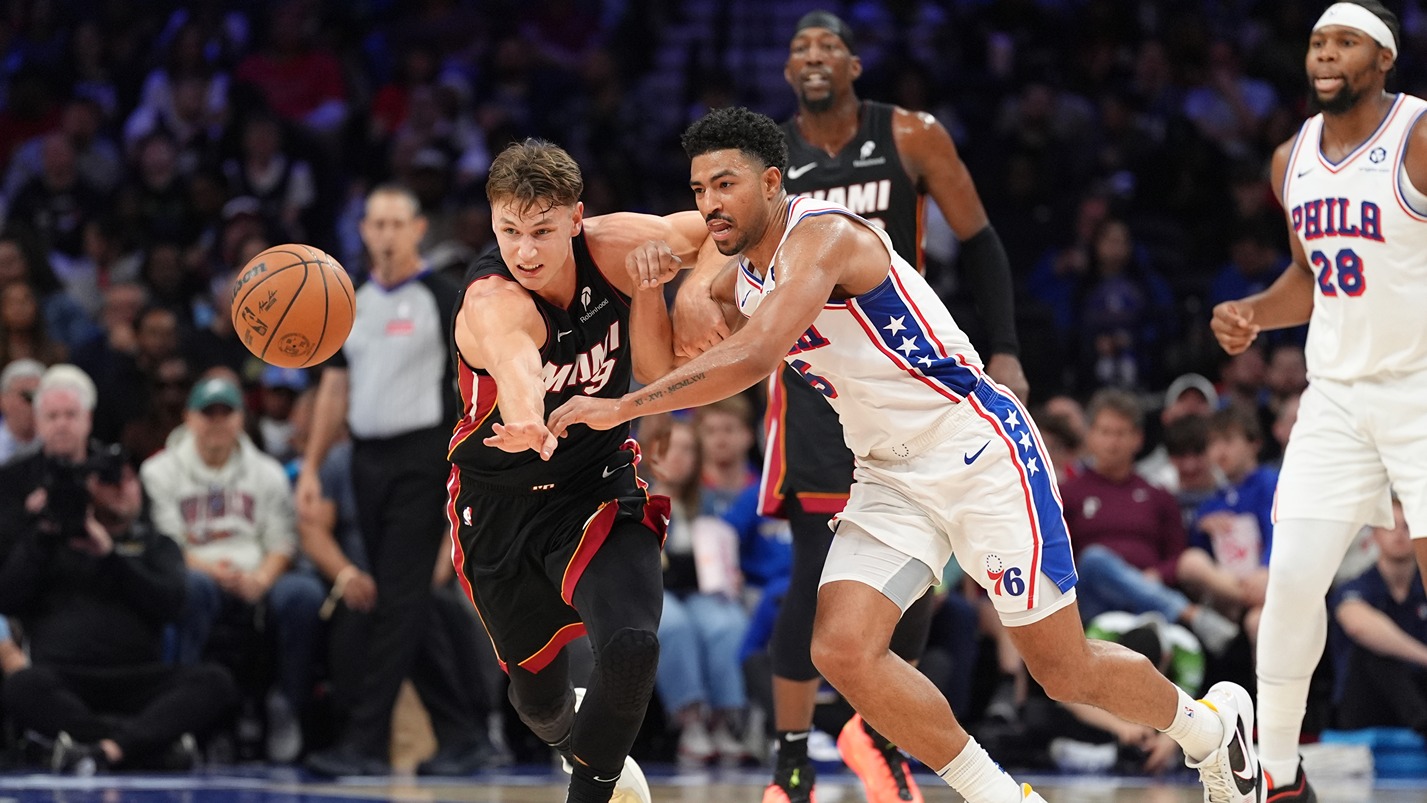The bottom-tier teams in the NBA have more incentive to lose than to win late in the season. Here’s how to change it.
The Sixers and Pelicans played Monday night in a game where both fanbases were justified in hoping for a loss rather than a win. The Raptors and Wizards played under similar circumstances. That’s because the NBA draft lottery incentivizes the league’s bottom-feeders to lose rather than win as disappointing seasons wind down.
Better to increase the odds of landing a potential superstar than worry about “meaningless” games down the stretch, right? Makes total sense in the current system, which is why the current system needs to change.
Stay in the game with the latest updates on your beloved Philadelphia sports teams! Sign up here for our All Access Daily newsletter.
If you want to make sure that teams keep competing, you must take away any possible reward for losing games.
Here’s a simple plan for how to do just that:
- A 30-pick draft lottery where every team who owns a first-round pick has the exact same odds for every pick. If this system were in place for the 2025 draft, the Thunder and Celtics would have the same chances at Cooper Flagg as the Wizards and Jazz.
- If a team has multiple first-round picks, it has more chances in that 30-pick lottery.
- The picks would be drawn in reverse order, just as the draft lottery works now. So, pick No. 30 would be drawn first, then pick No. 29, etc.
- Protected draft picks would convey in the same fashion they do now. If the 30-pick system were in place this year, here’s how the Sixers’ top-6 protected pick would work: It would go to Oklahoma City if the Sixers' pick landed anywhere between picks No. 7 and 30. If it ended up in the top six, the Sixers would keep it.
Here are some of the benefits of a 30-pick draft lottery:
- There is no benefit to losing games. None. You have as much chance at getting the No. 1 pick if you have the best record as you do with the worst record. We’d get more competitive rosters and more competitive games late in seasons because teams won’t have any incentive to lose.
- Ending up in the middle of the pack is no longer a franchise death sentence. The whole point of the Sixers’ “Process” was that a middling team would never get access to elite talent. Under the system that was in place, a mediocre team trading away its best players with the goal of finishing at the bottom of the standings was a completely reasonable strategy. But in a 30-pick lottery, that method of team building is no longer viable.
- It could be a lot more fun to see top rookie talent go to successful franchises rather than struggling ones. Was it bad for the NBA when Larry Bird and Magic Johnson went to the Celtics and Lakers? Personally, I think it would have been interesting to have Victor Wembanyama on a playoff team right away and see how that might have altered the landscape.
- The 30-pick lottery would be one of the most exciting nights on the NBA calendar. Imagine every fan tuning in knowing their team had a 1-in-30 chance of landing a talent like Flagg or Wembanyama.
I’m already envisioning some of the counterarguments to a 30-pick lottery, so let me address a few of them:
NBA
Couldn’t this create a superteam?
Sure, it could. In a 30-pick lottery, the Thunder or Celtics could absolutely end up with Flagg. Totally plausible scenario. Is that bad for the league? That’s up for the fans to judge.
How will bad teams ever get better?
Bad teams will still have the same chance at getting the best rookie talent as any other team. It’s just no longer a guaranteed chance. Also, let’s examine the five players most likely to make the All-NBA first team this season:
- Shai Gilgeous-Alexander (11th overall pick, acquired via trade)
- Donovan Mitchell (13th overall pick, acquired via trade)
- Giannis Antetokounmpo (15th overall pick, still with team that drafted him)
- Jayson Tatum (3rd overall pick, chosen with pick acquired via trade)
- Nikola Jokic (41st overall pick, still with team that drafted him)
You’ll notice that only one of these players was drafted in the top 10. The idea that hoarding top-10 picks is the only way to acquire elite talent is just not true.
Perhaps a few teams will still be perennial bottom-feeders through some combination of incompetence, injuries and bad luck. But at least they won’t be purposely trying to lose.
Won't luck be too big a factor in acquiring elite talent?
Lottery luck would play a major role in the fortunes of franchises, no question. But teams get these picks wrong all the time anyway.
Jared McCain went 16th overall last year and Tyrese Maxey went 21st in 2020. We see some teams swing and miss in the top 10 and other teams find stars in the back end of the first round. At least in this system, we aren’t rewarding incompetence or strategic losing with top picks. Team executives will have to get more creative to find ways to improve.
Brian Brennan is the producer of Sixers Pregame and Postgame Live for NBC Sports Philadelphia. He watches far too much basketball.


